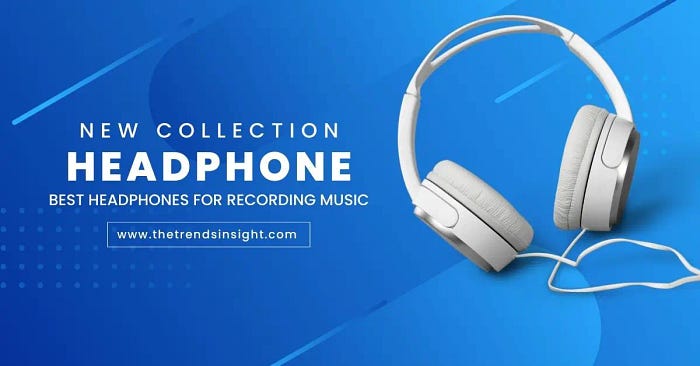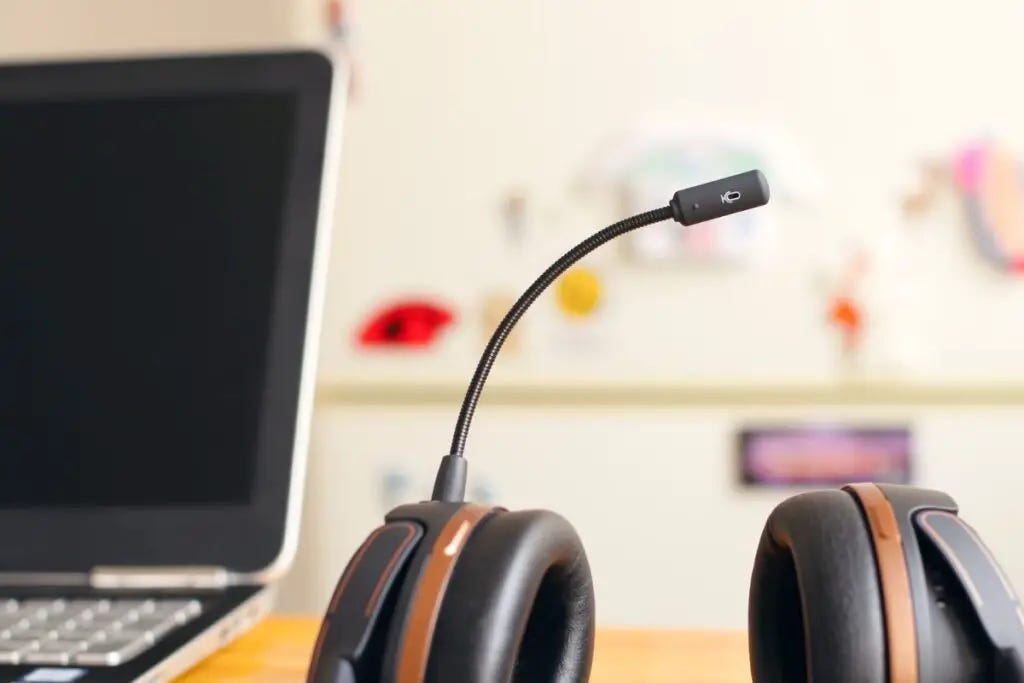The Best Headphones For Recording Music In 2023
When recording music, having high-quality Best Headphones for Recording music is essential. Whether you’re a professional musician or an aspiring producer, the right pair of headphones can make all the difference in achieving studio-quality sound. They allow you to hear every detail of your recordings and accurately represent the mix, allowing for precise adjustments and improvements.
Investing in the best headphones for recording music ensures that your final product meets the highest standards. With the right pair of headphones, you can catch any flaws or imperfections in your recordings that may go unnoticed with ordinary headphones.

Understanding The Different Types Of Best Headphones For Recording Music
Before diving into the best headphones for recording music, it’s essential to understand the different types available. The two main categories are closed-back and open-back headphones.
Closed-back headphones are designed to isolate sound, making them ideal for recording in noisy environments or when you need to avoid distractions. They provide excellent noise cancellation and prevent sound leakage, ensuring you can focus on your recordings without interference.
On the other hand, open-back headphones are more suitable for mixing and mastering tasks. They have perforated ear cups that allow sound to escape, resulting in a more natural and open soundstage.

What To Look For When Choosing The Best Headphones For Recording Music
Several factors must be considered when selecting the best headphones for recording music. The first is frequency response.
- Frequency response: The frequency response of a headphone refers to the range of frequencies it can reproduce. A comprehensive frequency response is crucial for accurately reproducing sound frequencies, from deep bass to crisp highs.
- Soundstage: A headphone’s soundstage refers to the sound’s perceived width and depth. A wide soundstage can help you to better position of instruments and vocals in a mix.
- Comfort: Headphones that are uncomfortable to wear can be distracting and make it difficult to focus on your work. Look for headphones with soft, padded earcups and an adjustable headband.
- Isolation: Closed-back headphones provide more isolation than open-back headphones, which can be helpful if you are recording in a noisy environment. However, open-back headphones can offer a more natural soundstage.
Build quality: Studio headphones need to be able to withstand the rigors of everyday use. Look for the Best Headphones for Recording Music that are made from durable materials and have a good warranty.

Top Considerations Best Headphones For Recording Music
Regarding the best headphones for recording music, there are a few additional considerations to consider. Firstly, impedance plays a crucial role.
- Impedance: The impedance of a headphone refers to its resistance to electrical current. High-impedance headphones require more power to drive, making them ideal for use with dedicated audio interfaces or headphone amplifiers.
- Sound isolation: Studio headphones should provide sufficient isolation to prevent sound leakage and minimize bleed when recording with microphones.
- Sound signature: The sound signature of a headphone refers to its overall tonal balance. Some headphones have a more neutral sound, while others may emphasize specific frequencies.
Tips For Getting The Most Out Of Your Studio Headphones
To get the most out of your studio headphones, consider the following tips:
- Use high-quality audio files: Ensure that your recordings and music files are of high quality. Lossless formats such as WAV or FLAC are recommended for the best audio fidelity.
- Take breaks: Listening fatigue can affect your judgment and perception of sound. Take regular intervals during long recording or mixing sessions to rest your ears.
- Reference your mix on different systems: While your studio headphones may provide accurate sound reproduction, checking your mix on other playback systems is essential. This will help ensure that your combination translates well across various devices and environments.
- Experiment with positioning: The position of your headphones on your head can affect the sound. Adjust the angle and position to find the sweet spot for optimal sound reproduction.
- Use headphone amplifiers: If you’re using high-impedance headphones, consider using a dedicated amplifier to ensure sufficient power delivery and optimal performance.
Conclusion
Choosing the best headphones for recording music is a crucial investment for any musician or producer. You can find the perfect pair that suits your needs by understanding the different types of headphones available and considering factors such as frequency response, comfort, and durability.
